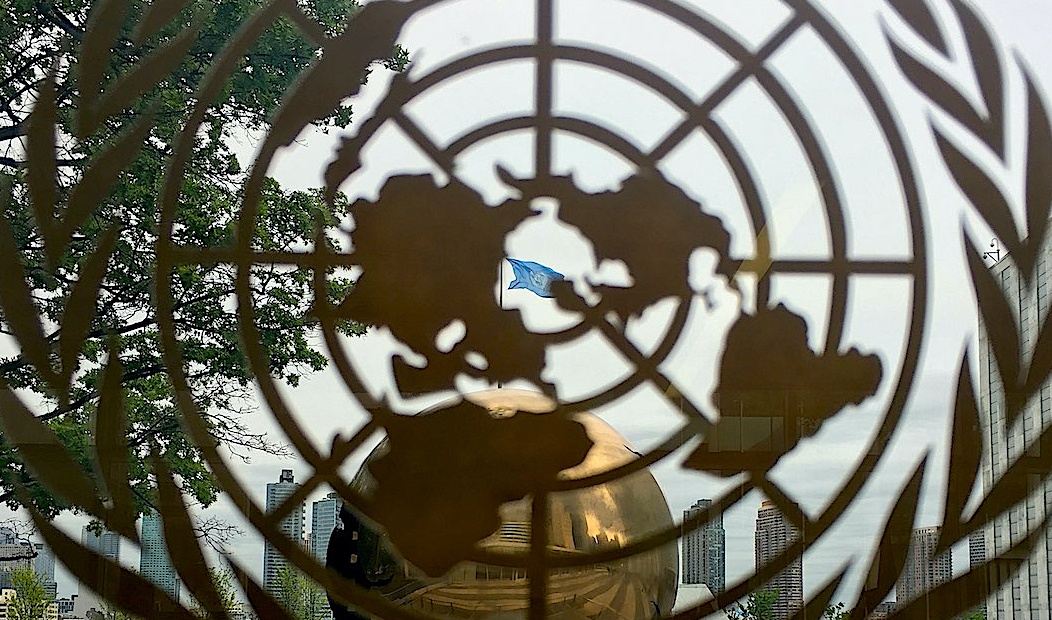TurkishJournal – By Seda Karakaya and Şevval Tufan
In a landmark session, representatives from across the globe gathered for the meeting of the United Nations Security Council to address the longstanding Palestinian question and escalating tensions in the Middle East. Held at the UN Headquarters in New York, the high-level discussion brought together key stakeholders and diplomats, linking efforts to seek resolutions to the complex challenges facing the region.
UN Secretary-General Antonio Guterres opened the debate by highlighting the dire humanitarian crisis in Gaza. Over the past 100 days, escalating violence has claimed more than 25,000 lives, predominantly women and children, due to Israeli military operations. Guterres strongly condemned the collective punishment of Palestinians, describing it as “appalling” and emphasizing the impact on Gaza’s 2.2 million residents facing harsh winter conditions without adequate shelter, sanitation, food, and drinking water.
Expressing deep concern, Guterres outlined the increased risk of infectious diseases due to non-functioning hospitals and limited patient mobility. He called for an immediate end to hostilities and the establishment of a functional medical evacuation system. While acknowledging UN efforts, Guterres stressed the inadequacy of current aid levels and advocated for private sector involvement in delivering essential goods.
Operational challenges for humanitarian missions in Gaza were highlighted, with a focus on safety concerns, improved notification mechanisms, and reliable infrastructure. Guterres urged restraint in regional tensions, welcomed international de-escalation efforts, and emphasized the need for clear political roadmaps in conflict zones like Syria and Yemen.
In a resolute conclusion, Guterres reiterated the call for a two-state solution to the Israeli-Palestinian conflict, rejecting alternatives and emphasizing the urgent need for a political resolution to ensure long-term regional stability. The international community now awaits the impact of Guterres’ plea, hoping for a sustainable resolution to the ongoing crisis in Gaza.
Representatives from various member states expressed their perspectives on the Middle East situation. While some emphasized the importance of a two-state solution, others called for a comprehensive approach addressing the root causes of conflicts and promoting safety and political stability.
Muslim states, excluding Israel, stressed the urgent need for an immediate ceasefire in Gaza and the surrounding region. Gratitude was expressed to the Secretary-General for the briefing, and the organization of the high-level debate was commended.
Highlighting the toll of the conflict, diplomats underscored the urgency of halting the conflict to protect civilians and enable the delivery of humanitarian assistance. Condemnation was voiced against statements proposing the mass displacement of Palestinians from Gaza. Concerns were raised about the conditions faced by internally displaced Palestinians, emphasizing the safety of various regions, including Yemen, South Africa, Lebanon, and Syria.
The President of France declared their commitment to both Israel and Palestine, pledging necessary initiatives at the opportune moment.
Russia echoed calls for a ceasefire, characterizing Palestinians as sisters and brothers, while accusing the US of hindering roads and humanitarian aid initiatives.
In an impassioned address, Al Maliki, representing the State of Palestine, called for a ceasefire and justice. He condemned Israel’s actions, highlighting a brutal bombing campaign and mass displacement leading to famine. Urging adherence to international law, Al Maliki presented two choices: “spreading fire or extinguishing fire,” emphasizing the State of Palestine’s dwindling time.
On the opposing side, Israeli Representative Gilad Erdan accused Hamas of turning Gaza into a war machine. Expressing concerns about a permanent ceasefire, Erdan likened the conditions in the Middle East to cancer, emphasizing the UN’s provision of aspirin as a remedy.
As tensions escalated during the meeting, it is noteworthy that when the Israeli representative, Gilad Erdan, began speaking, some diplomats chose to leave the room. This action underscores the deeply divided opinions and strong emotions surrounding the Israeli-Palestinian conflict within the diplomatic community.
Erdan shifted focus to Iran, labeling it as the true security threat, and accusing it of arming and training terrorist organizations. He drew a controversial parallel with Hitler’s foreign minister participating in UN discussions, warning about Iran’s expanding influence and calling for collective action.
While the UK and US emphasized safety, security, and a ceasefire, they accused Hamas of terrorist attacks and raised concerns about hostages. The US representative condemned Iran and the Houthis, emphasizing the need for Israel and Palestine to learn to live side by side. Russia was criticized for not condemning Hamas’s terrorist attacks.
Austria, Australia, Belgium, EU, Switzerland, the US, and the UK primarily emphasized Israel’s safety over Palestine. Türkiye’s Ministry of Foreign Affairs, represented by Hakan Fidan, emphasized safety, security, and a ceasefire. Fidan asserted that Palestine has shifted from being an open prison to a battleground, and he emphasized the need to hold Israel accountable for what he deemed as a criminal act.
Diplomats acknowledged the complexities of the Middle East situation, recognizing the necessity of a multifaceted approach involving diplomatic, political, and humanitarian efforts to bring about some positive change.
The meeting concluded with a call for continued international cooperation and diplomatic initiatives to address the challenges in the Middle East. The Security Council reaffirmed its commitment to promoting peace, stability, and justice in the region, with discussions expected to continue as the international community seeks a comprehensive and lasting resolution to the longstanding issues in the Middle East.




